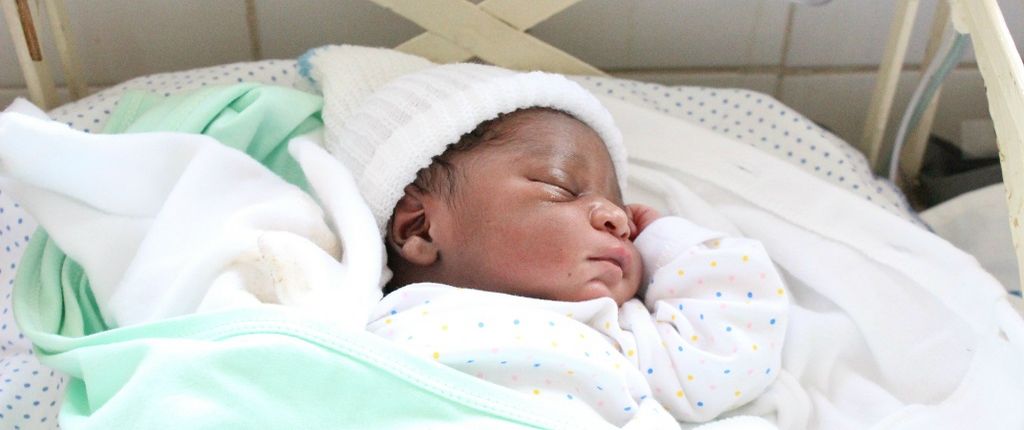
This project has been completed.
For a healthy start in life
Faced with the ongoing high rate of mother and child mortality in Uganda, Malteser International has entered into a cooperation with Lubanga hospital – one of the largest religious hospitals in Kampala – in order to modernize and extend the outdated, insufficient, and too-small structures of the hospital’s maternity ward. The new structures will provide pregnant women and their newborns with medical help adhering to modern hygiene and care standards in an appropriate environment before, during and after giving birth. In addition, the project is concentrated on newborns at risk of sickle-cell anemia – one of the world’s most prevalent hereditary illnesses. A chronic disease of the red blood cells, leading to often clump together – leading to painful complications, thromboses and infarctions. When left untreated, most children with the diseases to not live to see their fifth birthday. When the disease can be diagnosed and given specialist treatment from an early stage, many of its complications can be avoided.
Lubaga Hospital is one of the oldest and largest religious hospitals in Kampala. It is located in the neighborhood of Lubaga – a crowded area inhabited largely by migrants and with large slums. Local state structures there are completely insufficient for the size of the population. For many local residents, Lubaga hospital – which sets its prices in a socially aware manner – is the only place where they can receive diagnosis and treatment when they are ill. The patient intake is very large, and often exceeds the available space. In the maternity department, more than 6,000 children come into the world each year.
It is our goal to reduce mother and child mortality before, during, and after the birth, and to improve the opportunities for the diagnosis and treatment of sickle-cell anemia in one of the most socially disadvantaged areas of Kampala through the provision of a medical service and environment that meets with modern standards of hygiene and care.
- Renovation, restructuring, modernization and expansion of the building.
- Revision of hygiene processes.
- Further training of personnel.
- Installation of an Hemoglobin Electrophoresis machine, allowing for a diagnosis of sickle-cell anemia directly after the birth.
- Beginning of dedicated clinic hours for all children diagnosed with sickle-cell anemia and their parents.
Country info
Capital: Kampala
Area: 241,040 km²
Population: c. 38.8 Million
Project data
Project duration: since August 2015
Donors: German Federal Ministry for Economic Cooperation and Development, Lubanga Hospital, private donations
Partner: Lubanga Hospital
Last updated: January 2016








